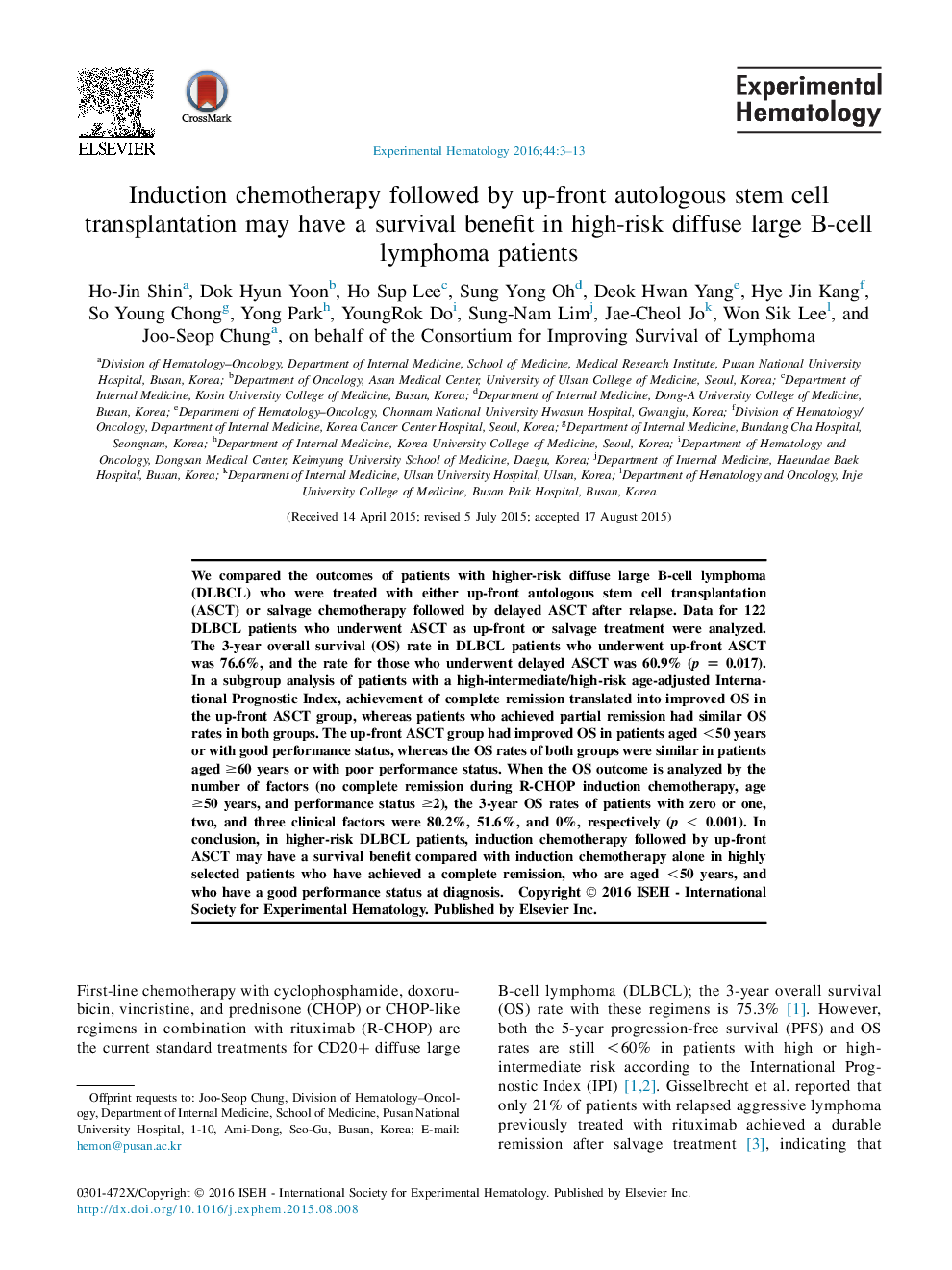| Article ID | Journal | Published Year | Pages | File Type |
|---|---|---|---|---|
| 2133650 | Experimental Hematology | 2016 | 11 Pages |
•The role of up-front autologous stem cell transplantation (ASCT) is still controversial in higher-risk diffuse large B-cell lymphoma patients.•In higher-risk patients, achievement of a complete response translated into improved overall survival in the up-front ASCT group.•In the up-front ASCT group, OS was improved in patients aged <50 years or with good performance status.•Up-front ASCT may have a survival benefit in highly selected patients who have achieved a complete response, are aged <50 years, and have good performance status at diagnosis.
We compared the outcomes of patients with higher-risk diffuse large B-cell lymphoma (DLBCL) who were treated with either up-front autologous stem cell transplantation (ASCT) or salvage chemotherapy followed by delayed ASCT after relapse. Data for 122 DLBCL patients who underwent ASCT as up-front or salvage treatment were analyzed. The 3-year overall survival (OS) rate in DLBCL patients who underwent up-front ASCT was 76.6%, and the rate for those who underwent delayed ASCT was 60.9% (p = 0.017). In a subgroup analysis of patients with a high-intermediate/high-risk age-adjusted International Prognostic Index, achievement of complete remission translated into improved OS in the up-front ASCT group, whereas patients who achieved partial remission had similar OS rates in both groups. The up-front ASCT group had improved OS in patients aged <50 years or with good performance status, whereas the OS rates of both groups were similar in patients aged ≥60 years or with poor performance status. When the OS outcome is analyzed by the number of factors (no complete remission during R-CHOP induction chemotherapy, age ≥50 years, and performance status ≥2), the 3-year OS rates of patients with zero or one, two, and three clinical factors were 80.2%, 51.6%, and 0%, respectively (p < 0.001). In conclusion, in higher-risk DLBCL patients, induction chemotherapy followed by up-front ASCT may have a survival benefit compared with induction chemotherapy alone in hig
